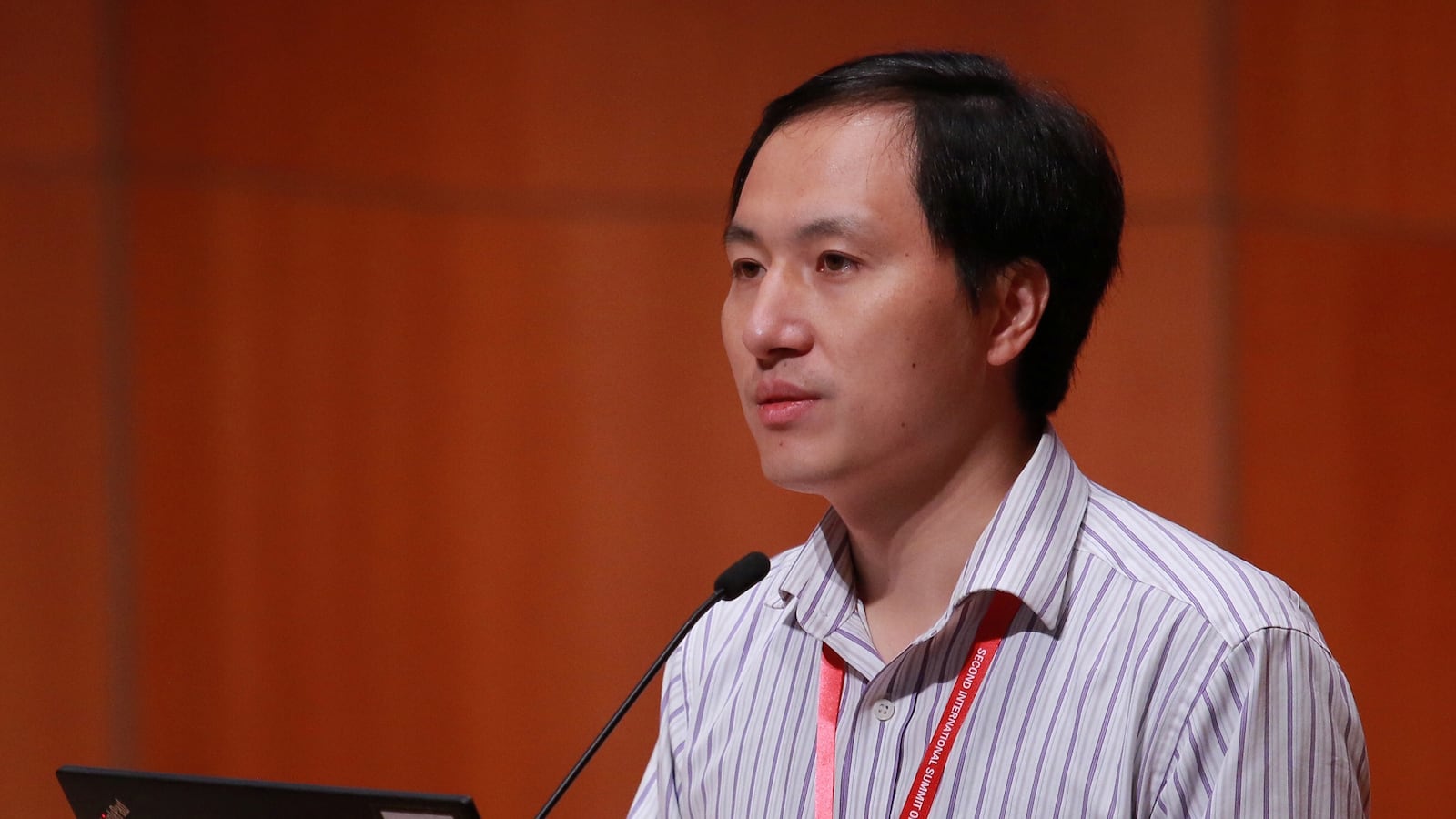The genetic mutation that a Chinese researcher claimed was used to create HIV-resistant twins may also cause a shorter lifespan, according to a new study. Researcher He Jiankui rocked the science and medical worlds when he announced last year that he had created the first genetically edited babies—and that they were HIV resistant. Now, a new study has shown that the mutation Jiankui utilized is also linked to a shorter lifespan. The discovery, published Monday in the journal Nature Medicine, came from scientists at University of California Berkeley, where CRISPR, the gene-editing tool Jiankui used, was in part discovered. The Berkeley researchers found that the mutation is associated with a 21 percent increase in mortality later in life. “An important thing to consider is the fact that a mutation doesn’t just have one effect,’’ said Rasmus Nielsen, a UC Berkeley biologist and author of the paper. “So even though a mutation might fix one problem, it might create other problems.’’
Jiankui quickly faced backlash from fellow researchers over the ethical questions attached to his groundbreaking claim. He could also face criminal charges for violating Chinese regulations in the process. Jiankui allegedly edited human embryos and implanted them in female volunteers without disclosing what he was doing, using unsafe methods, and forging review materials that made his work appear ethical.






